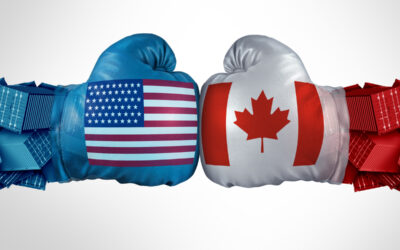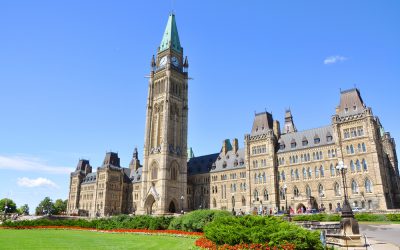From March 10 to 13, 2025, we surveyed Canadians on different issues on behalf of Rogers and City News.
Highlights include…
- Liberal Party Leads: If a federal election were held today, the Liberal Party of Canada (LPC) leads with 40%, while the Conservative Party of Canada (CPC) on their tail with 37% among decided voters.
- Regional & Demographic Differences: CPC dominates in Alberta and the Prairies, while the Libs perform better elsewhere. Men are more likely to vote CPC, while Liberal voting intention shows no significant gender differences. Some past NDP voters also show signs of shifting toward the Liberals.
- Best Prime Minister Candidate: Similarly, 34% of Canadians consider Mark Carney the best choice for Canada’s next Prime Minister, while 30% prefer Pierre Poilievre. Men are more likely to support Poilievre, whereas Canadians aged 55+ are more likely to favour Carney.
- Top Issues for Canadians: The most important issue for Canadians right now is the US, followed by fiscal matters. Improving Canada-US relations tops the list of priorities for the federal government to focus on; though cost of living is a higher priority for younger adults and CPC voters.
- Leader Best Equipped to Handle Top Issues: Between Mark Carney and Pierre Poilievre, 37% of Canadians see Mark Carney as better equipped to manage US-Canada relations under a Trump administration, while 30% favour Pierre Poilievre. Conversely, 31% believe Poilievre is best suited to handle cost of living and affordability, compared to 28% for Carney.
- Concerns About US Relations: Most Canadians are concerned about Donald Trump’s references to Canada as the “51st state” and the growing US-Russia ties. Nearly all oppose the idea of Canada joining the US, with the top reasons being loss of identity, culture, and sovereignty. While still a minority, newcomers, younger Canadians and men are more open to the idea.
- Shifting Spending Habits Amid Tensions: A majority are increasing their purchases of Canadian products and half plan to or are already subscribing more to Canadian channels or streaming services. The propensity to take action is even greater among older Canadians.
- Limited Support for Key Policies: Regardless of the election outcome, Canadians support continuing the foreign homebuyer ban. There is less support for some other policies, including carbon pricing. At the time of survey, most Canadians felt the Carbon tax should be reassessed, with four in ten supporting its complete removal.
- Immigration & Housing: Two thirds believe immigration drives up housing costs, and most think the government isn’t doing enough.
Regional Spotlight:
- British Columbia: Four in ten British Columbians rate David Eby as doing enough to handle US relations, with him ranking second to Premier Ford and ahead of Premier Smith.
- Vancouverites are likely to vote Liberal in the upcoming federal elections and think the party will be best for their city; they also think Carney will be the strongest leader for US relations.
- Alberta: The public does not hold favourable opinions about Premier Smith’s handling of the AHS situation or US relations.
- An overwhelming majority Calgarians will vote CPC and believe the Conservative Party is best for their city, with Poilievre also seen to be the preferred leader for managing US relations.
- Edmontonians also lean Conservative but to a lesser extent. Moreover, 33% favour Carney for managing US relations and 30% back Poilievre.
- Ontario: Six in ten think Doug Ford is doing enough to handle US relations, significantly better than the other premiers assessed.
- Torontonians are leaning Liberal for the upcoming Federal election and think the party would be best for their city and Carney best for US relations.
Methodology
The results for this wave of research are based on online research conducted from March 10 to March 13, 2025 with a representative sample of 1,540 Canadian adults 18 years of age and older from Leger’s LEO panel.
This included:
-n=201 Toronto (metro) residents
-n=151 Vancouver (metro) residents
-n=151 Calgary (metro) residents
-n=150 Edmonton (metro) residents
The data was statistically weighted according to 2021 Canadian Census figures.
A margin of error cannot be associated with a non-probability sample in a panel survey, but
For comparison purposes, a probability sample of this size yields a margin of error no greater than ±2.49%. A probability sample of n=150 (Edmonton, Calgary, Vancouver) yields a margin of error no greater than ±8.00%.
A probability sample of n=201 (Toronto) yields a margin of error no greater than ±6.91%.




